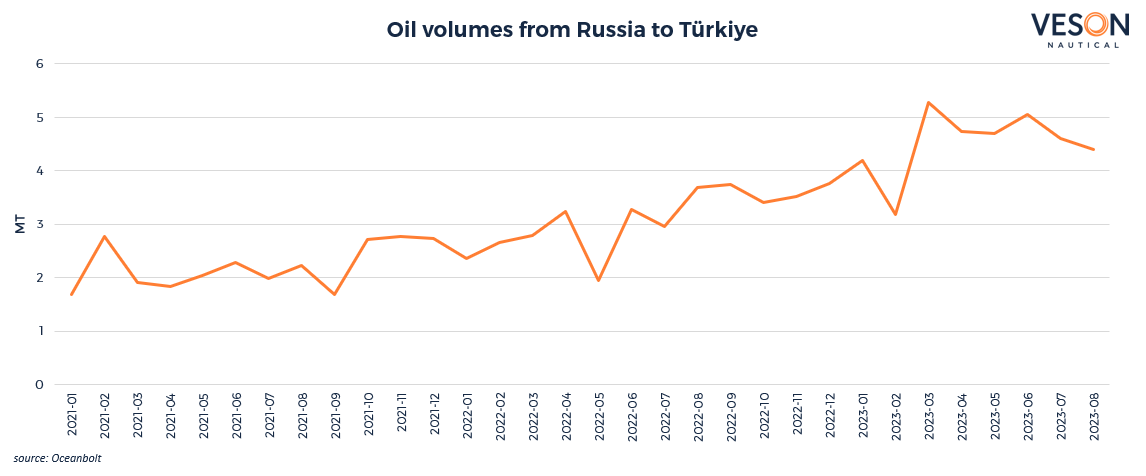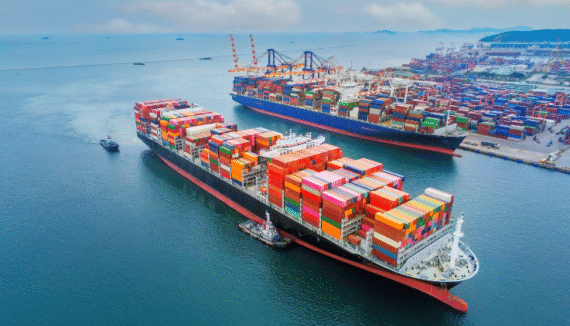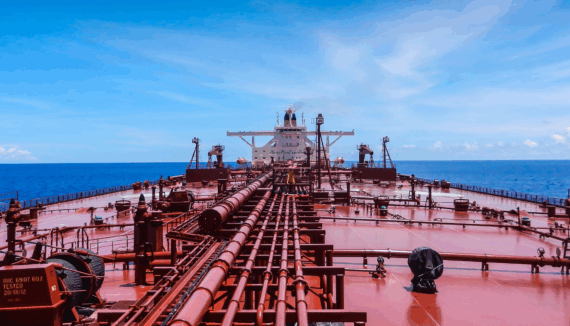The conflict between the Ukraine and Russia has caused a change in trade flow patterns for various commodities but none more so than the Tanker sector. Data from Oceanbolt, a Veson Solution, indicates an increase of Russian oil exports to Turkey. This figure has continued to rise since the start of the war both for Crude /Dirty Petroleum products and also for the Clean sector as the nation has become something of a ‘transit hub’ for Russian oil, which has played a part in enabling the sanctions on Russian exports to be bypassed.
Although Turkey is not a member of the European Union, the country has applied for EU accession and is a member of NATO (North Atlantic Treaty Organisation) and therefore the nation’s refusal to comply with the economic blockades imposed by the EU has continued to be a surprise to many.
Since the outbreak of the war in February 2022, Russian exports to Turkey have increased by c.64% from 2.66 MT to 3.4 MT at the start of August 2023, following a peak of 5.06 MT in June 2023.
Crude volumes have been moving in an upwards trajectory, increasing by c.12% from 2.12 MT in February 2022 to 2.38 MT in August 2023. However, it is the Clean petroleum sector that has seen the most dramatic rise with imports up by 360% from 310,000 MT in February of last year to 1.41 MT in August 2023.

Turkey currently ranks third in a list of the top destinations for exports of Russian Crude and Clean petroleum products, following behind China and India. The majority of oil imports to Turkey are coming in to Aliaga, which has received 6.8 MT so far this year. Novorossisyk is the busiest port in Russia for oil exports, accounting for 14.8 MT of oil exports in 2023 to date.




